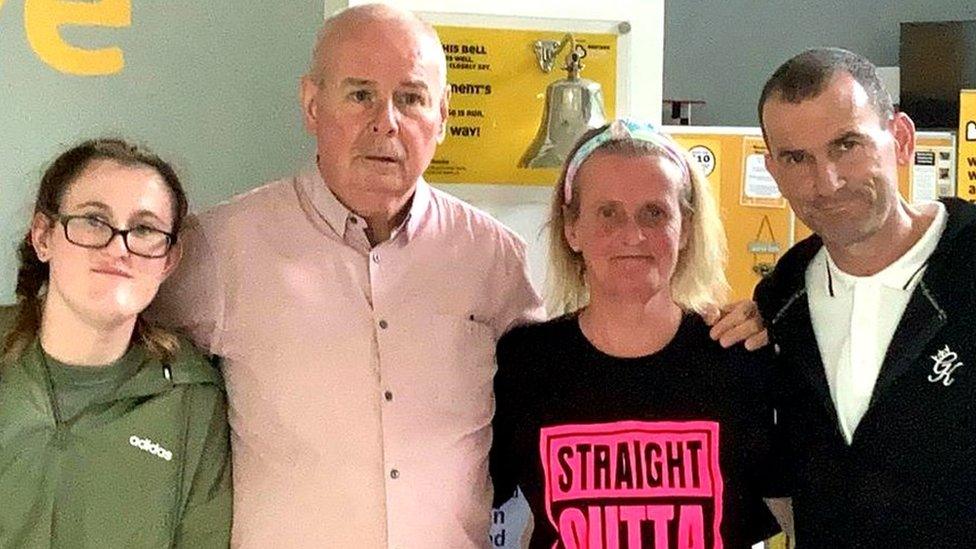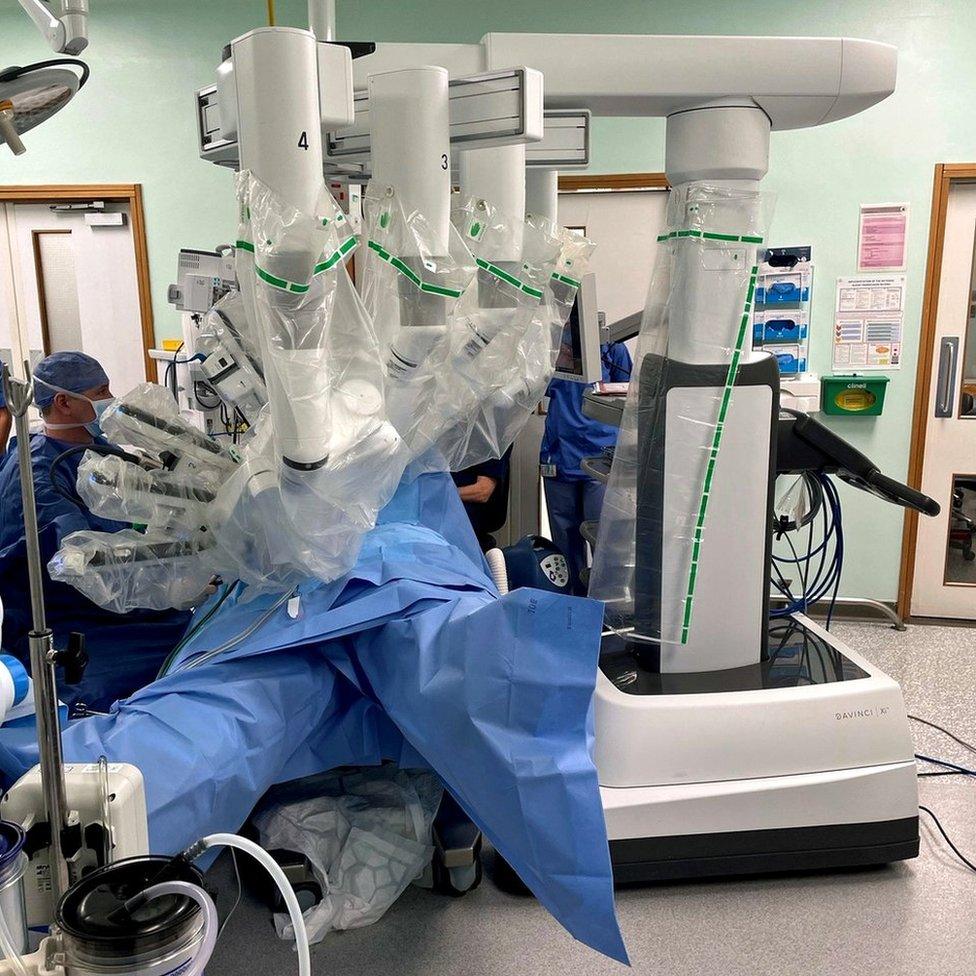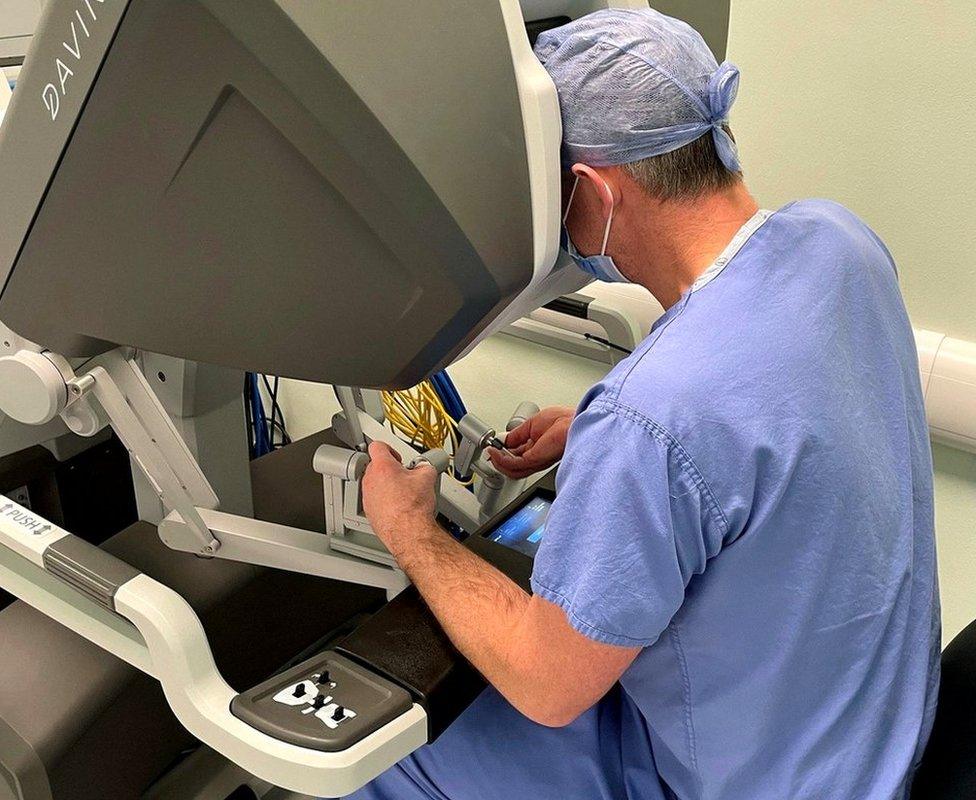'Robotic surgery helped save my life after cancer diagnosis'
- Published

Deborah with her daughter Antonia (left), her dad Thomas (middle) and partner Paul (right)
A Scottish woman has credited an innovative robotic surgery procedure for helping to save her life.
Deborah Speirs from Tollcross in Glasgow was told she had stage three bowel cancer in March 2021.
Instead of opting for traditional cancer surgery, she agreed to having a robot perform the operation, directed by a surgeon.
After the procedure and subsequent chemotherapy, the 46-year-old has now been given the all-clear.
Deborah said: "An operation is a scary word in itself. I never thought anything about a robot being directed by a surgeon.
"In what was a very traumatic time for me and my family, I genuinely think that robotic surgery has saved my life."
More than 60 doctors across NHS Scotland are trained in the use of robotic surgery, with 15 machines in operation.

The four-armed robot helped to achieve Deborah's all-clear from cancer
The da Vinci robotic systems have four arms which can hold a camera and surgical tools, with the surgeon operating these from a console in the operating theatre.
The robots give surgeons a greater range of motion than in traditional surgery, with the precision they give bringing quicker recovery times, with shorter stays in hospital for patients.
Deborah added: "When you are told you are diagnosed with cancer, it takes a while for this to really sink in as you never think it is going to happen to you.
"The technology is amazing and I was up and walking around in a matter of days after my surgery.
"I wanted to start hoovering when I got home from hospital but my daughter made sure I rested up. It just shows you how great this is for recovery."

Prof Roxburgh operates the four robot arms from a console within the theatre
In NHS Greater Glasgow and Clyde robotic surgery is available at Glasgow Royal Infirmary and the Queen Elizabeth University Hospital.
Colorectal, urology and gynaecology operations can be performed this way, as well as head and neck surgery.
Deborah had the procedure explained by Prof Campbell Roxburgh, a surgeon at Glasgow Royal Infirmary.
He stressed that the surgeon "still has absolute control of everything that is going on".
Prof Roxburgh said: "Robotic surgery has already shown huge improvements in patient care and recovery times.
"In addition to this, it helps reduce complications, imaging assessments, blood transfusions, readmission rates and infections.
"Deborah is just one example of a number of successful surgeries using this type of equipment."
Neil McCallum, director for NHS Greater Glasgow and Clyde's north sector, said: "At a time when we are facing increased pressures, it is great to highlight the extraordinary work our teams are undertaking.
"This procedure will enable us to treat more patients more quickly, and with better outcomes."